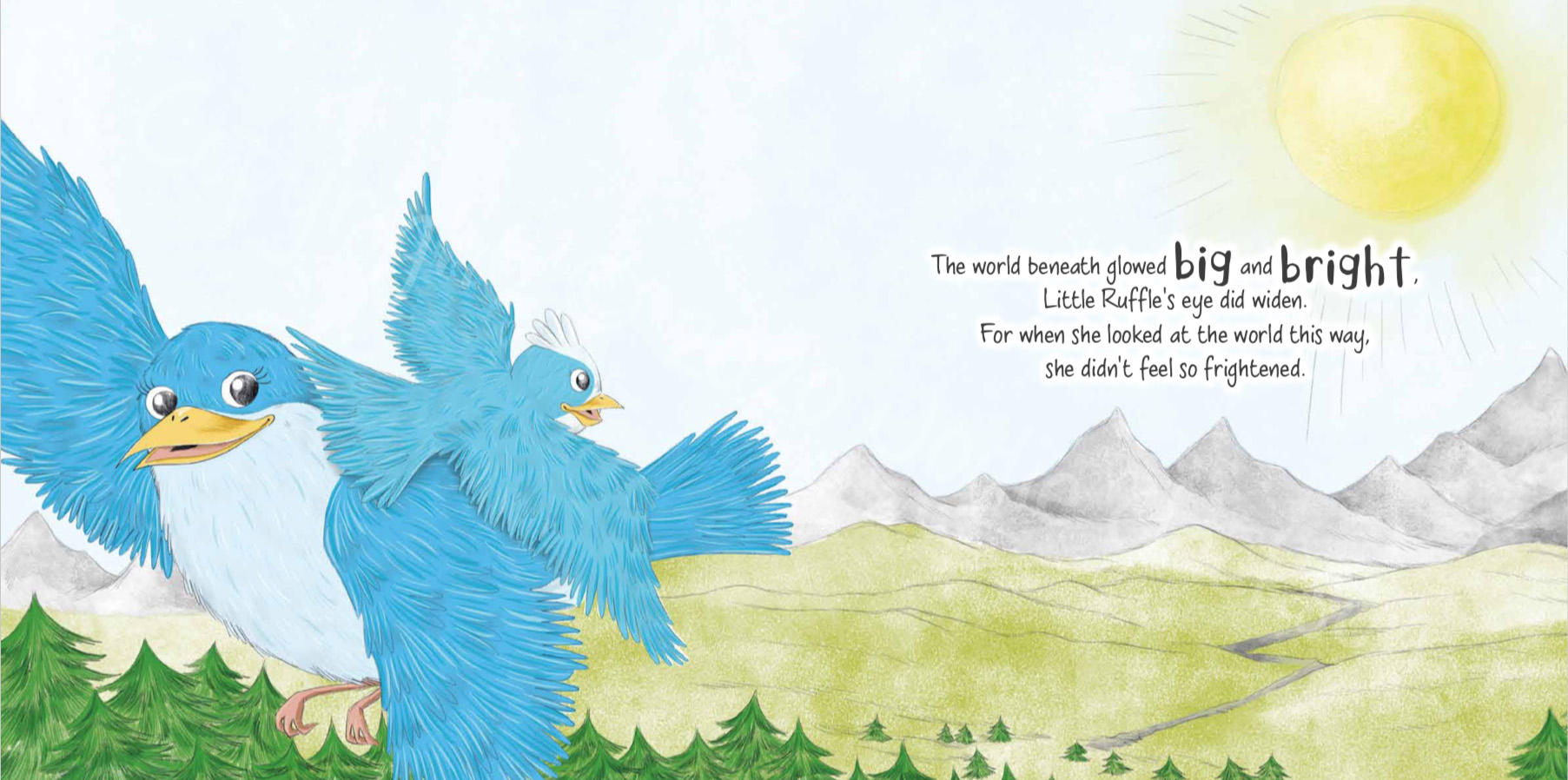
One of the effects of excessive negativity in our media consumption is news avoidance.
And this does not only apply to the adults. To help children not be put off by the news, Jodie Jackson, author of constructive journalism book 'You Are What You Read', has published a new children's book 'Little Ruffle and the world beyond' as an introduction to constructive journalism.
In 28 pages, the story sees a small bird, Ruffle, too scared to leave the nest because of the dangerous world outside. The mother bird helps Ruffle find the courage to open her eyes to the good in the world and her child eventually flies the nest.

Illustrations by Sarah-Leigh Willis. Credit: Jodie Jackson, 'Little Ruffle and the world beyond'.
The world has, indeed, been a scary place this year. Though conversations may take place in the classroom, outside of it, children are vulnerable to the psychological impact of negative news. It is more pressing to address this at such a formative stage of their development, said Jackson, who also holds a masters degree in positive psychology.
"When coronavirus kicked off, the media [landscape] was totally negative. There was enough fear going around already without that being exacerbated," she explains.
As a mother of two herself and with one more on the way, she did not want her children to start feeling anxious about the world around them. Instead, she wanted to instil hope, optimism and self-empowerment in a way children are familiar with.
"When I looked at advice from organisations on mental health, the guidance for children is just to avoid it altogether. But as they get older, allow them to watch more but be there with them and discuss what they see," Jackson adds.
"But I think that is so broken because it doesn’t have to be this way. Learning to avoid bad news is not enough, we need to introduce solutions to make children feel empowered.
"We accept this broken system then try to fix the individual. But if we change our media environment to include both good and bad news then I think this will naturally help children."
"The problems, they were solvable by those who dare to try. But the elders flew too fast to see and these stories passed them by."Extract from 'Little Ruffle and the world beyond'
This book draws upon research conducted in her previous book geared towards adults, but many of the lessons are consistent, for example, on the positive effects of solutions reporting.
Alongside the story is an online website to apply the lessons from the book, complete with a range of activities and mental health resources. Together, this is the product of conversations with teachers on how to translate lessons on constructive journalism into a classroom setting.
The book is currently in one school in London where it is read to children, with two more in discussion. Jackson is open to coming into schools for talks, though this has been difficult with covid-19 restrictions.
But schools are just one avenue. The book's main benefit is to be a point of discussion for families at home. The book is aimed at children aged three and up, the online resources are aimed at key stage two (ages seven to 11).
Free daily newsletter
If you like our news and feature articles, you can sign up to receive our free daily (Mon-Fri) email newsletter (mobile friendly).
Related articles
- How a digital news startup tackled Lisbon’s local news deserts with constructive storytelling
- Seán Wood, CEO of Positive News, on fighting news avoidance
- 14 networks and resources for solutions journalism in Europe
- Calling all media experts: join a network to help young children have better news diets
- Why did good news do so well in 2021?









